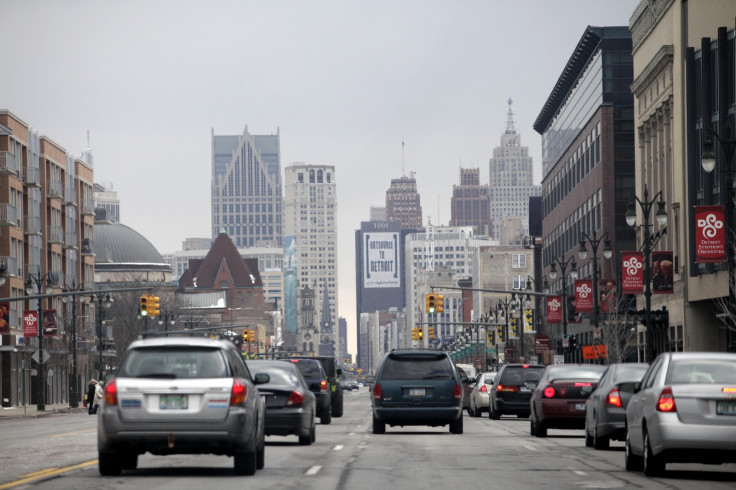Michigan passes new laws allowing driverless car trials on public roads
The new laws will permit auto and technology companies to operate driverless ride-sharing services.

Michigan, the home of the US auto industry, has become one of the first states in the US to pass comprehensive legislation for the testing, use and eventual sale of self-driving cars in the state. Michigan Governor Rick Snyder signed four autonomous driving bills on Friday (9 December) at the Automotive Hall of Fame in Dearborn that clarify how the autonomous vehicles can be legally used on public roads. The new laws would repeal the state's pre-existing law barring automated driving in the state.
The new legislation will allow vehicles without steering wheels, gas or break pedals or any human control to be tested on public roads. It will also permit auto and technology companies to operate driverless ride-sharing services and includes rules for how the autonomous vehicles can be sold to the public after the technology has passed the necessary tests and certifications.
"Michigan is the global center for automative technology and development, having transformed the way the world moves for more than 100 years," Snyder said in a statement. "By establishing guidelines and standards for self-driving vehicles, we're continuing that tradition of excellence in a way that protects the public's safety while at the same time allows the mobility industry to grow without overly burdensome regulations."
The law also establishes the Michigan Council on Future Mobility, a branch of the Michigan Department of Transportation that will work to develop future state wide policies and industry standards. It will also regulate connected vehicle networks and handle traffic data collection and sharing.
Fiat Chrysler Automobiles, Ford, General Motors, Toyota, Google, Uber and Lyft contributed to the drafting of the legislation.
The new comprehensive legislation aims to put Michigan ahead of other US states such as California in the race to develop, test and sell driverless technology and vehicles.
Bryant Walker Smith, a legal scholar with the University of South Carolina School of Law who studies self-driving vehicles and technologies, wrote in a blog post that the bill's language is "somewhat confusing because it would seem to subvert many proposed restrictions on research tests and on-demand automated motor vehicle networks."
"Making sense of all this is difficult. The currently proposed language could mean that automated driving is lawful only in the context of research and development and 'on-demand motor vehicle networks,'" Smith wrote in September. "Or it could mean that automated driving is lawful generally and that these networks are subject to more restrictive requirements... Clarifying these provisions is a necessary condition to evaluating them."
In September, the National Highway Traffic Administration released federal safety guidelines for autonomous vehicles governing the development, testing, manufacture and deployment of self-driving vehicles.
David Strickland, the general counsel for the Self-driving Coalition for Safer Streets - a lobbying group that represents Ford, Volvo, Lyft, Uber and Google, said this week that "self-driving vehicle hardware needs a single national framework to avoid an inconsistent patchwork of state laws and regulations."
"This could otherwise severely inhibit innovators' ability to test and deploy new technologies nationwide that have the great potential to improve safety and mobility," Strickland wrote. "The complex and evolving nature of self-driving technology requires not only a flexible approach by policymakers at all levels of government but also one that provides consistency across the country."
© Copyright IBTimes 2025. All rights reserved.





















